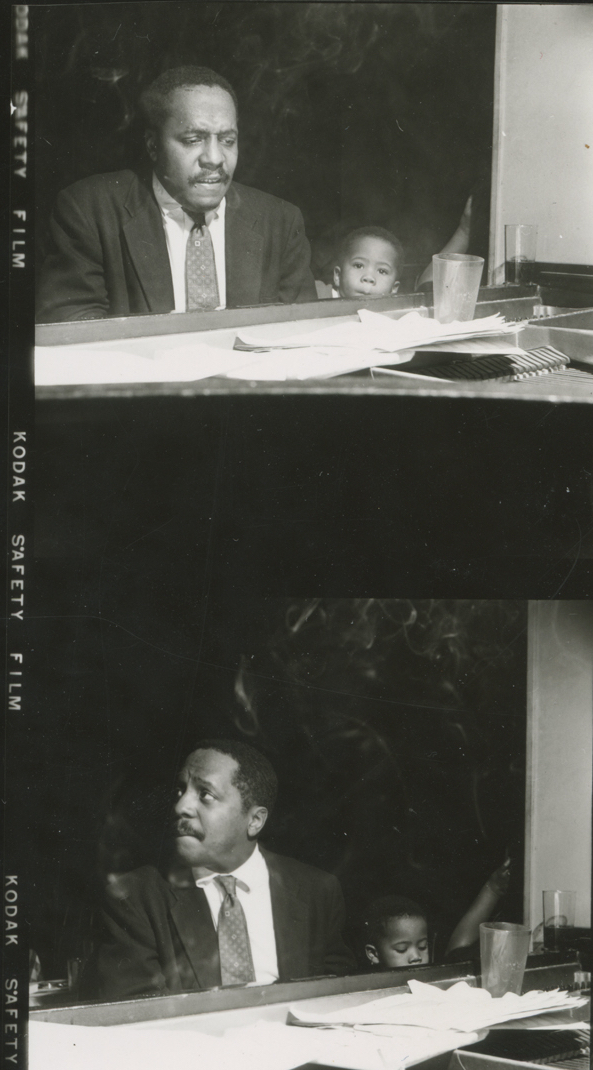For jazz enthusiasts of my vintage and persuasion, Blue Note was the modern jazz label. (Partisans of Prestige, Atlantic, Esquire, Riverside et al may disagree.) In recent decades, with the emergence of the neo-hipster, Blue Note became at least as coveted for the Reid Miles cover designs as for the music it championed, and books have been devoted to the art of the house photographers and designers, with the recordings somewhat sidelined. (For a good chronicle of the whole shebang I’d recommend Richard Cook’s Blue Note Records: The Biography.)
Originally an independent, founded in 1939 by Alfred Lion and Max Margulis, soon joined by photographer Francis Wolff, Blue Note was bought by Liberty Records in 1965. In 1969 United Artists absorbed Liberty, itself swallowed by EMI in 1979. EMI closed down the label but eventually relented, and revived it in 1985. As behemoth consumed leviathan only to be sucked up by ever bigger fish, Blue Note eventually became the hub for a raft of labels covering all sorts.
Although mainly associated with the hard bop and soul/gospel jazz of the 50s and 60s, Blue Note was originally set up to record boogie pianists Albert Ammons and Meade Lux Lewis, then continued to promote early jazz forms, recording the likes of Sidney Bechet (who supplied the label’s first hit, “Summertime”), Art Hodes, Sidney de Paris, Edmund Hall and James P. Johnson. Since the mid-80s the label has released numerous reissues, often remastered by the original engineer, the legendary Rudy van Gelder, as well as recordings (such as some by Charlie Parker) which were not originally on Blue Note, and a variety of new recordings.
Beyond the Notes is the second documentary feature by Swiss filmmaker Sophie Huber. It opens with a rehearsal by the Blue Note All-Stars, formed in 2014 to celebrate the label’s 75th anniversary. A dazzling montage of classic covers follows against a back-drop of tracks interspersed with comments by Blue Note signings of various vintages. This technique sets the tone for the rest of the film.
Blue Note attracted musicians because Lion and Wolff treated them well. Bobby Hutcherson comments that they weren’t musicians and had German accents but they were “one of us”. Herbie Hancock talks of them striving to bring out each musician’s personality, “never shackling them”, and he and Wayne Shorter discuss how the music allowed personal expression within the context of co-operation. Shorter says “other companies were baffled: why would you start a label except to make money? … We had no thought of making hits or competing with the music business”.
We hope you’re enjoying this article, an example of the expert and compendious jazz journalism for which Jazz Journal is renowned. Will you – reader, artist, promoter – help sustain our work by donating?
We are told how this purist ethos eventually backfired. Hits with Lee Morgan’s The Sidewinder and Horace Silver’s Song for My Father led to distributors pressing Blue Note for more hits and holding back payment, creating cash-flow problems that finally led to the sale to Liberty. Lion left in 1967, unhappy in the big-business environment, and Wolff died in 1971. The label then began to phase out new recordings of most straightahead jazz. Jazz had told the story of the inner cities but hip-hop took over this function in the 80s, often sampling Blue Note recordings. The label concluded it was better to join them than try to beat them. The last section of the film documents jazz and rap collaborations and fusions that have appeared on the label.
Whilst appraising the evolution of the label the film regales our ears with a substantial number of superb musical excerpts, our eyes with montages of album covers, photos and contact sheets, glimpses of Lion’s session notebooks, and peeks into Van Gelder’s studios, and delights eyes and ears with footage of diverse musicians from Meade Lux Lewis, via the Silver, Art Blakey and Clifford Brown generation to Kendrick Lamar.
This documentary does not provide a cohesive chronological history … nor does it set out to do so, being more concerned with capturing spirit and atmosphere … but it does provide a glorious wallow for us Blue Note fans and an enticing taster for tyros.
Blue Note Records: Beyond the Notes – 83 minutes, directed by Sophie Huber. Produced by Mira Film in association with Eagle Rock Entertainment. bluenotemovie.com
















